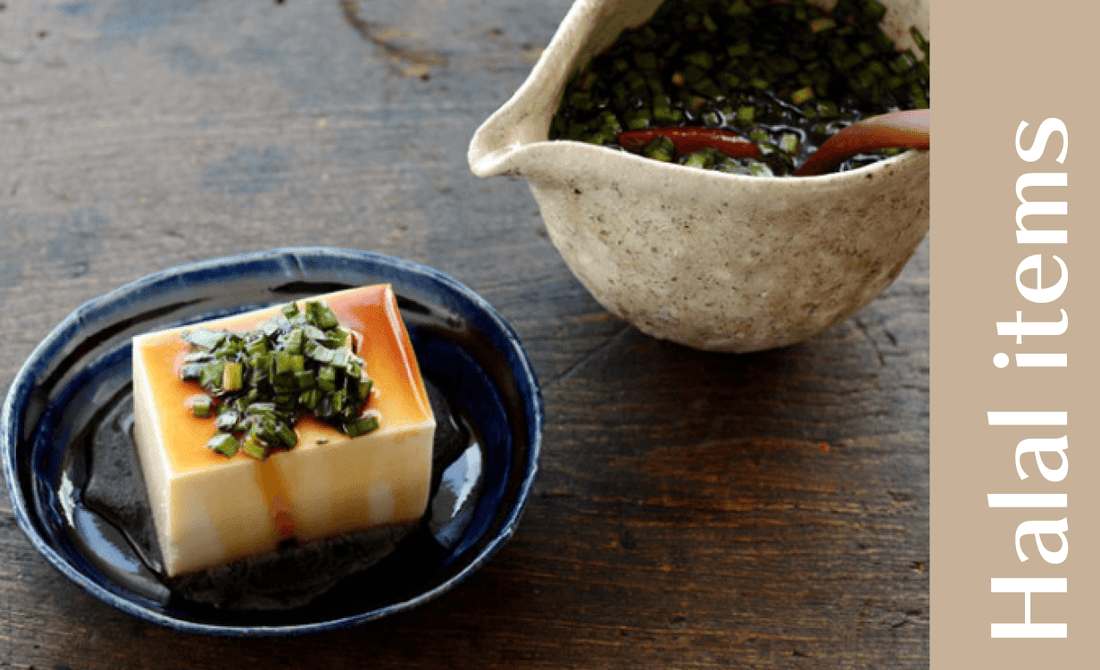Safe and Delicious for Muslim Consumers



Our products are Halal-certified soy sauce, mentsuyu, and other condiments that meet strict Halal food standards. This means that they are safe for Muslim consumers to consume and are also made with the highest quality ingredients and traditional Japanese manufacturing techniques to ensure an authentic and delicious taste.
1. Commitment to Ingredients
We use carefully selected Japanese soybeans and wheat as our base ingredients and follow brewing methods to produce our condiments. We are committed to using no pork or alcohol, allowing the natural flavors of the ingredients to shine through.



2. Authentic Japanese Flavor
Our soy sauce has a rich, mellow flavor and a deep aroma. Our mentsuyu is made with bonito and kelp dashi, giving it a savory flavor that is perfect for udon and soba noodles, as well as simmered dishes and hot pot.

3. Versatile Use
Our products can be used not only as basic Japanese condiments but also in a variety of other dishes. They are also perfect for dressings and marinades.

4. Safety and Security
All of our products are manufactured in HACCP-certified factories. They are also produced under strict quality control systems to ensure safety.
Experience Authentic Japanese Cuisine with Our Halal Certified Condiments
Our products were developed with the desire to bring the taste of authentic Japanese cuisine to Muslim consumers around the world. They are Halal-certified, so you can use them with confidence. We invite you to enjoy authentic Japanese cuisine in your own home.



Recipes for Japanese home cooking!
Japanese Beef Stew (Nikujaga) Recipe
Introduction Nikujaga is a classic Japanese home-cooked dish that features a hearty stew of beef, potatoes, carrots, and onions simmered in a savory soy sauce-based broth. It’s one of the most famous Japanese home-cooked dish.
Ingredients (Serves 4)
- 300g beef
- 4 potatoes, peeled and cut into chunks
- 2 onions, cut into wedges
- 1 carrot, peeled and cut into chunks
- 1 package shirataki noodles, rinsed and drained
- 400ml water
- 4 tablespoons soy sauce
- 3 tablespoons mirin (sweet rice wine)
- 2 tablespoons sugar
- 2 tablespoons Japanese sake
- 5cm piece of kombu (dried kelp)
- 2 tablespoons vegetable oil
Instructions
-
Preparation:
- Cut the beef into bite-sized pieces.
- Peel and cut the potatoes, onions, and carrots into even-sized chunks.
- Rinse the shirataki noodles and cut them into bite-sized pieces.
-
Sauté:
- Heat the vegetable oil in a large pot over medium heat. Add the beef and cook until browned on all sides. Remove from the pot and set aside.
-
Add the potatoes, onions, and carrots to the pot and sauté until they are lightly browned
.

-
Simmer:
-
Return the beef to the pot. Add the shirataki noodles, water, soy sauce, mirin, sugar, sake, and kombu. Bring to a boil, then reduce heat to low, cover, and simmer for about 20 minutes, or until the vegetables are tender.

-
Return the beef to the pot. Add the shirataki noodles, water, soy sauce, mirin, sugar, sake, and kombu. Bring to a boil, then reduce heat to low, cover, and simmer for about 20 minutes, or until the vegetables are tender.
-
Finish:
- Remove the kombu and taste the stew. Adjust the seasoning with additional soy sauce or sugar if needed.
- Continue simmering, uncovered, until the liquid has reduced and the stew has thickened.
Author
|
Expert in 100 Yen shop (Japanese Dollar Stores): Yoshifumi Matsumoto from ECI Co., Ltd. I am Yoshifumi Matsumoto, an expert in Japanese 100 yen shops at ECI Co., Ltd. With over 5 years of experience in the retail industry, I specialize in introducing and selecting 100 yen products, as well as conducting extensive market research. My expertise also extends to managing store operations and organizing various retail events. At ECI Co., Ltd., I handle a wide range of everyday products, providing valuable insights to overseas supermarket operators and buyers interested in incorporating popular Japanese 100 yen products into their inventory. Contact Information ECI Co., Ltd. |




